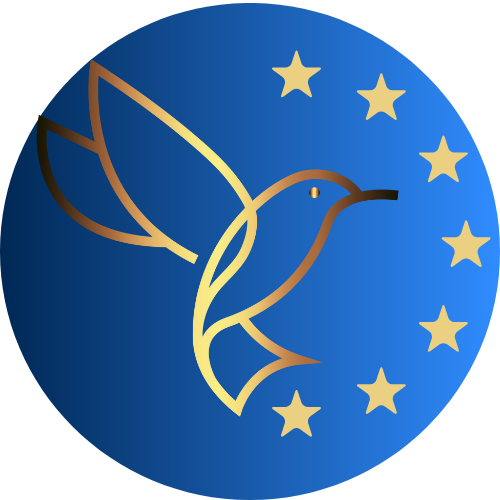European Researchers’ Night and Researchers at Schools 2026-2027
HORIZON-MSCA-2025-CITIZENS-01-01
Introduction
The Horizon Europe MSCA and Citizens 2025 call focuses on fostering closer connections between researchers and society through engaging and accessible initiatives. It invites proposals for organizing the European Researchers’ Night and implementing the Researchers at Schools initiative. These activities aim to enhance public awareness and appreciation of research, especially among young people and underrepresented groups, while improving researchers’ communication skills. The call emphasizes inclusivity, diversity, and alignment with EU priorities such as climate change and sustainable development. Applicants are encouraged to plan for two editions of activities (2026 and 2027) and establish partnerships to ensure wide-reaching and impactful events.
Programme
Horizon Europe (HORIZON)
Deadline date
22 October 2025 17:00:00 Brussels time
Budget
EUR 16 253 880
Contributions
100000 to 300000
Indicative number of grants
50
Expected outcome
For researchers
- Enhanced opportunities to interact with citizens and local, regional and national authorities;
- Improved communication skills and competences to interact with a non-research audience, notably with pupils and students.
For organisations
- Increased reputation and visibility of participating organisations in terms of hosting excellence research projects towards the general public and possible future students;
- Researchers’ work made more tangible, concrete, accessible, and thus opening research and science to all;
- Improved outreach to all audiences, and notably those who do not have an easy access to science and research activities;
- Better communication of R&I results and activities to society, increased and strengthened opportunities for citizens’ engagement.
Scope
Proposals should cover both the organisation of the European Researchers’ Night and the implementation of the Researchers at Schools initiative.
The European Researchers’ Night takes place every year, on the last Friday of September. It supports events that can last up to two days: they can start on Friday and continue the following day. Pre-events, prior to the main event, and related post-events, such as wrap-up meetings or small-scale follow-up events, can also be organised. It is the occasion for a Europe-wide public and media event for the promotion of research careers.
The European Researchers’ Night targets the general public, addressing and attracting people regardless of the level of their scientific background, with a special focus on young people and their families, pupils and students, and notably those who do not have easy access to, and thus are less inclined to engage in STEAM fields (science, technology, engineering, arts and mathematics) or research activities.
The Researchers at Schools initiative brings researchers to schools and other pedagogical and educational centres to interact with pupils on societal challenges and on the key role of research to address them. Pupils will thus also learn directly about research projects and initiatives related to EU main priorities.
Types of Activities
European Researchers’ Night activities can combine education with entertainment, especially when addressing young audiences. They can take various forms, such as exhibitions, hands-on experiments, science shows, simulations, debates, games, competitions, quizzes, etc. Where appropriate, engagement with educational institutions should be sought in order to encourage formal and informal science education with the aim of improving the scientific knowledge base. The European Researchers’ Night should be highlighted as a European (and Europe-wide) event, and each proposal should promote the European Union and its impact on citizens’ daily life in the most appropriate way, according to the set-up and the configuration of the event, its location and its activities.
Researchers at Schools activities will allow researchers to showcase their work and interact with pupils. Researchers will engage with teachers, educators and pupils on challenges related to climate change, sustainable development, health and other issues related to the European Commission priorities and main orientations, such as the European Green Deal or the EU Missions. The Researchers at Schools activities should take place at any time during the project duration and should be subject to a dedicated promotion, particularly towards schools and other pedagogical and educational centres.
Involvement of researchers funded by Horizon Europe or previous Framework Programmes, notably by the Marie Skłodowska-Curie Actions, is highly encouraged.
Both the European Researchers’ Night and Researchers at Schools initiative should promote gender balance, diversity and inclusiveness in science in terms of planned activities and researchers involved.
The European Commission has defined priorities, notably through the EU Missions, which aim to tackle challenges faced by our societies. Applicants are encouraged to focus on, and include activities relating to these priorities identified by the Missions in their events.
Partnerships and coordination at regional, national or cross-border levels will be strongly encouraged aiming at a good geographical spread and avoiding overlaps. Activities carried-out in non-associated third countries are not eligible for funding.
High-quality applications not retained due to lack of funding may be granted the status of associated events.
Eligible costs will take the form of lump sum contributions as stipulated in Decision of 11 March 2021 authorising the use of lump sum contributions and unit contributions for Marie Skłodowska-Curie actions under the Horizon Europe Programme.
Applicants are encouraged to submit proposals covering activities for both 2026 and 2027, including the organisation of two successive editions (2026 and 2027) of the European Researchers’ Night and implementation of Researchers at Schools activities during the project duration.
Expected Impact
- Enhance engagement with citizens on R&I;
- Increase awareness among the general public of the importance and benefits of R&I and its concrete impact on citizens’ daily life;
- Contribute to the diffusion and the promotion of excellence research projects across Europe and beyond;
- Raise the interest of young people in science and research careers;
- Contribute to a better understanding of the European Union policies and programmes among the general public;
- Support school teachers and educators in developing a scientific approach around priority topics and creating a learning opportunity for pupils through a direct interaction with researchers.
Call Documents
Guide for Applicants to be published in June 2025 before the Call Opening.
